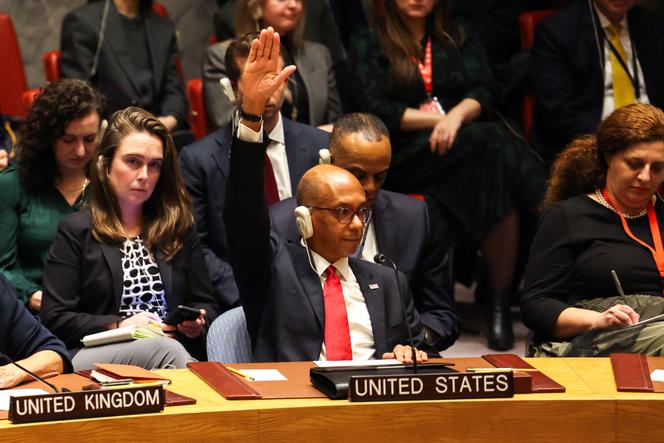


The United States is playing its role as Israel's strategic ally and protector to the full. As the war between Israel and Hamas enters its third month, marked by more than 17,000 deaths in the Gaza Strip, according to the local Hamas-run Ministry of Health, Washington vetoed an "immediate ceasefire" at the UN Security Council on Friday, December 8. Called for by Secretary-General Antonio Guterres and supported by nearly 100 member countries, the text received 13 votes in favor, with just one abstention from the United Kingdom. The draft resolution called for "an immediate humanitarian ceasefire," the release of hostages and humanitarian access to Gazans. The American umbrella over Israel at the Security Council, to spare it condemnation, is a long-standing tradition. Friday's vote was the 35th American veto since 1970.
"What is the message we are sending Palestinians if we cannot unite behind a call to halt the relentless bombardment of Gaza?" Mohamed Abushaha, deputy ambassador of the United Arab Emirates, coordinator of the negotiations on the text, asked his counterparts after the vote. Earlier, Guterres had once again denounced the "collective punishment" inflicted on Gazan civilians. "Today was a sad day in the history of the Security Council," lamented Palestinian UN representative Riyad Mansour. Israeli ambassador Gilad Erdan thanked the United States for "standing firmly by our side."
US Representative Robert Wood pointed to a resolution "divorced from reality," while the US favors "life-saving diplomacy." Some were hoping for an opening created by the meeting between US Secretary of State Antony Blinken and six of his Arab League counterparts (the heads of diplomacy of Turkey, Palestine, Saudi Arabia, Qatar, Jordan and Egypt) on Friday afternoon. But, after several changes, and because an American compromise seemed impossible, the vote was scheduled by the United Arab Emirates before the meeting even took place. "Some members felt it was necessary to show the world the face of the country that was blocking the dossier," recounted a Council ambassador involved in the closed-door negotiations.
On the diplomatic front, Russia is jubilant. The country is punctually emerging from its own isolation, caused by its massive crimes in Ukraine, and throwing back at Washington the argument of humanist values and concern for civilians. Russia's deputy ambassador, Dmitri Polyansky, pointed to a supposed American moral failing, calling the vote "one of the darkest days in the history of the Middle East" and accusing the US of issuing "a death sentence to thousands, if not tens of thousands more civilians in Palestine and Israel, including women and children."
You have 45% of this article left to read. The rest is for subscribers only.
